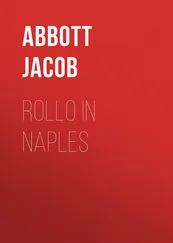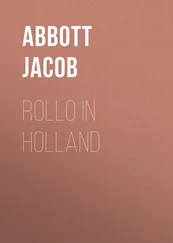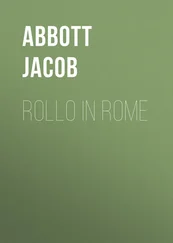Jacob Abbott - Rollo on the Rhine
Здесь есть возможность читать онлайн «Jacob Abbott - Rollo on the Rhine» — ознакомительный отрывок электронной книги совершенно бесплатно, а после прочтения отрывка купить полную версию. В некоторых случаях можно слушать аудио, скачать через торрент в формате fb2 и присутствует краткое содержание. Жанр: foreign_children, literature_19, foreign_antique, foreign_prose, на английском языке. Описание произведения, (предисловие) а так же отзывы посетителей доступны на портале библиотеки ЛибКат.
- Название:Rollo on the Rhine
- Автор:
- Жанр:
- Год:неизвестен
- ISBN:нет данных
- Рейтинг книги:4 / 5. Голосов: 1
-
Избранное:Добавить в избранное
- Отзывы:
-
Ваша оценка:
- 80
- 1
- 2
- 3
- 4
- 5
Rollo on the Rhine: краткое содержание, описание и аннотация
Предлагаем к чтению аннотацию, описание, краткое содержание или предисловие (зависит от того, что написал сам автор книги «Rollo on the Rhine»). Если вы не нашли необходимую информацию о книге — напишите в комментариях, мы постараемся отыскать её.
Rollo on the Rhine — читать онлайн ознакомительный отрывок
Ниже представлен текст книги, разбитый по страницам. Система сохранения места последней прочитанной страницы, позволяет с удобством читать онлайн бесплатно книгу «Rollo on the Rhine», без необходимости каждый раз заново искать на чём Вы остановились. Поставьте закладку, и сможете в любой момент перейти на страницу, на которой закончили чтение.
Интервал:
Закладка:
Jacob Abbott
Rollo on the Rhine
Chapter I.
The Approach To Cologne
If a man were to be raised in a balloon high enough above the continent of Europe to survey the whole of it at one view, he would see the land gradually rising from the borders of the sea on every side, towards a portion near the centre, where he would behold a vast region of mountainous country, with torrents of water running down the slopes and through the valleys of it, while the summits were tipped with perpetual snow. The central part of this mass of mountains forms what is called Switzerland, the eastern part is the Tyrol, and the western Savoy. But though the men who live on these mountains have thus made three countries out of them, the whole region is in nature one. It constitutes one mighty mass of mountainous land, which is lifted up so high into the air that all the summits rise into the regions of intense and perpetual cold, and so condense continually, from the atmosphere, inexhaustible quantities of rain and snow.
The water which falls upon this mountainous region must of course find its way to the sea. In doing so the thousands of smaller torrents unite with each other into larger and larger streams, until at length they make four mighty rivers—the largest and most celebrated in Europe. All the streams of the southern slopes of the mountains form one great river, which flows east into the Adriatic. This river is the Po. On the western side the thousands of mountain torrents combine and form the Rhone, which, making a great bend, turns to the southward, and flows into the Mediterranean. On the eastern side the water can find no escape till it has traversed the whole continent to the eastward, and reached the Black Sea. This stream is the Danube. And finally, on the north the immense number of cascades and torrents which come out from the glaciers, or pour down the ravines, or meander through the valleys, or issue from the lakes, of the northern slope of the mountains, combine at Basle, and flow north across the whole continent, nearly six hundred miles, to the North Sea. This river is the Rhine.
All this, which I have thus been explaining, may be seen very clearly if you turn to any map of Europe, and find the mountainous region in the centre, and then trace the courses of the four great rivers, as I have described them.
It would seem that the country through which the River Rhine now flows was at first very uneven, presenting valleys and broad depressions, which the waters of the river filled, thus forming great shallow lakes, that extended over very considerable tracts of country. In process of time, however, these lakes became filled with the sediment which was brought down by the river, and thus great flat plains of very rich and level land were formed. At every inundation of the river, of course, these plains, or intervals, as they are sometimes called, would be overflowed, and fresh deposits would be laid upon them; so that in the course of ages the surface of them would rise several feet above the ordinary level of the river. In fact they would continue to rise in this way until they were out of the reach of the highest inundations.
Immense plains of the most fertile land, which seem to have been formed in this way, exist at the present time along the banks of the Rhine at various places. These plains are all very highly cultivated, and are rich and beautiful beyond description. To see them, however, it is necessary to travel over them in a diligence, or post chaise, or by railway trains; for in sailing up and down the river, along the margin of them, in a steam-boat, you are not high enough to overlook them. You see nothing all the way, in these places, but a low, green bank on each side of the river, with a fringe of trees and shrubbery along the margin of it.
For about one hundred miles of its course, however, near the central portion of it, the river flows through a very wild and mountainous district of country, or rather through a district which was once wild, though now, even in the steepest slopes and declivities, it is cultivated like a garden. The reason why these mountainous regions are so highly cultivated is because the soil and climate are such that they produce the best and most delicious grapes in the world. They have consequently, from time immemorial, been inhabited by a dense population. Every foot of ground where there is room for a vine to grow is valuable, and where the slope was originally steep and rocky, the peasants of former ages have gathered out the rocks and stones, and built walls of them to terrace up the land. The villages of these peasants, too, are seen every where nestling in the valleys, and clinging to the sides of the hills, while the summits of almost all the elevations are crowned with the ruins of old feudal castles built by barons, or chiefs, or kings, or military bishops of ancient times, famous in history. This picturesque portion of the river, which extends from Bonn, a little above Cologne, to Mayence,—which towns you will readily find on almost any map of Europe,—was the part which Mr. George and Rollo particularly desired to see. When they left Switzerland they intended to come down the river, and see the scenery in descending. But Mr. George met some friends of his on the frontier, who persuaded him to make a short tour with them in Germany, and so come to the Rhine at Cologne.
"We can then," said he to Rollo, "go up the river, and see it in ascending, which I think is the best way. When we get through all the fine scenery,—which we shall do at Mayence,-we can then go up to Strasbourg, and take the railroad there for Paris—the same way that we came."
"Yes," said Rollo, "I shall like that."
Rollo liked it simply because it would make the journey longer.
When at length, at the end of the tour in Germany, our travellers were approaching Cologne on the Rhine, Rollo began to look out, some miles before they reached it, to watch for the first appearance of the town. He had been riding in the coupé of the diligence 1 1 The stage coaches on the continent of Europe are called diligences .
with his uncle; but now, in order that he might see better, he had changed his place, and taken a seat on the banquette. The banquette is a seat on the top of the coach, and though it is covered above, it is open in front, and so it affords an excellent view. Mr. George remained in the coupé, being very much interested in reading his guide book.
At length Rollo called out to tell his uncle that the city was in view. The windows of the coupé were open, so that by leaning over and looking down he could speak to his uncle without any difficulty.
Mr. George was so busy reading his guide book that he paid little attention to what Rollo said.
"Uncle George," said Rollo, calling louder, "I can see the city; and in the midst of it is a church with a great square tower, and something very singular on the top of it."
Mr. George still continued his reading.
"There is a spire on the top of the church," continued Rollo, "but it is bent down on one side entirely, as if it had half blown over."
"O, no," said Mr. George, still continuing to read.
"It really is," said Rollo. "I wish you would look, uncle George. It is something very singular indeed."
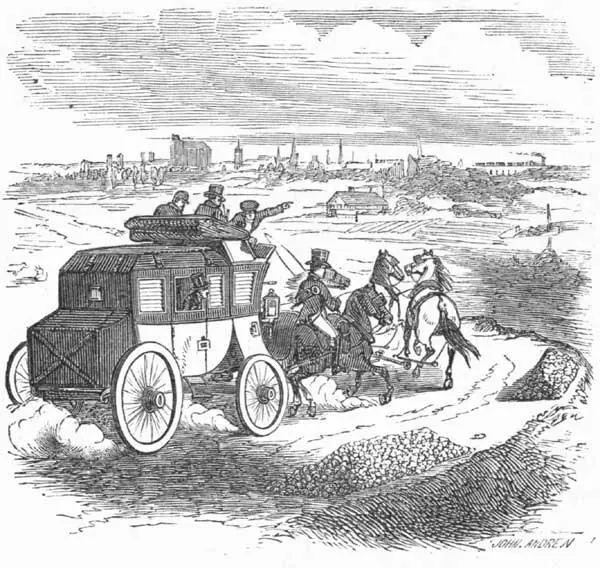
COLOGNE IN SIGHT.
Mr. George yielded at length to these importunities, and looked out. The country around in every direction was one vast plain, covered with fields of grain, luxuriant and beautiful beyond description. It was without any fences or other divisions except such as were produced by different kinds of cultivation, so that the view extended interminably in almost every direction. There were rows and copses of trees here and there, giving variety and life to the view, and from among them were sometimes to be seen the spires of distant villages. In the distance, too, in the direction in which Rollo pointed, lay the town of Cologne. The roofs of the houses extended over a very wide area, and among them there was seen a dark square tower, very high, and crowned, as Rollo had said, with what seemed to be a spire, only it was bent over half way; and there it lay at an angle at which no spire could possibly stand.
Читать дальшеИнтервал:
Закладка:
Похожие книги на «Rollo on the Rhine»
Представляем Вашему вниманию похожие книги на «Rollo on the Rhine» списком для выбора. Мы отобрали схожую по названию и смыслу литературу в надежде предоставить читателям больше вариантов отыскать новые, интересные, ещё непрочитанные произведения.
Обсуждение, отзывы о книге «Rollo on the Rhine» и просто собственные мнения читателей. Оставьте ваши комментарии, напишите, что Вы думаете о произведении, его смысле или главных героях. Укажите что конкретно понравилось, а что нет, и почему Вы так считаете.
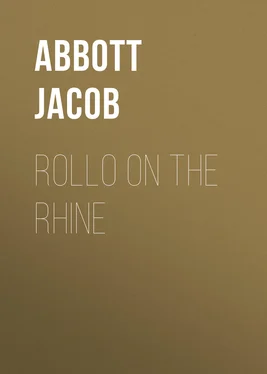

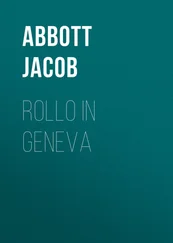
![Jacob Abbott - Rollo's Philosophy. [Air]](/books/717773/jacob-abbott-rollo-s-philosophy-air-thumb.webp)


